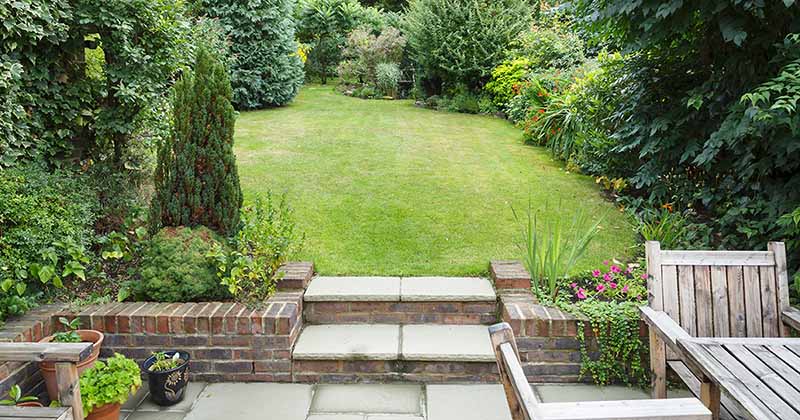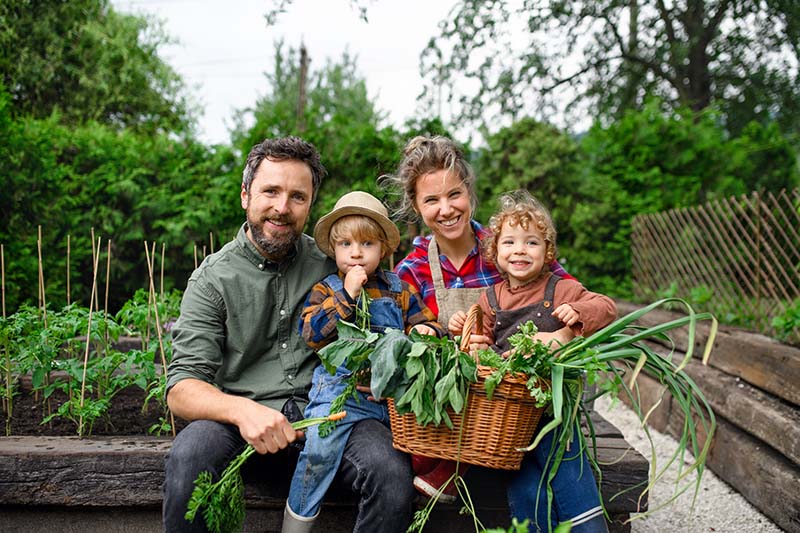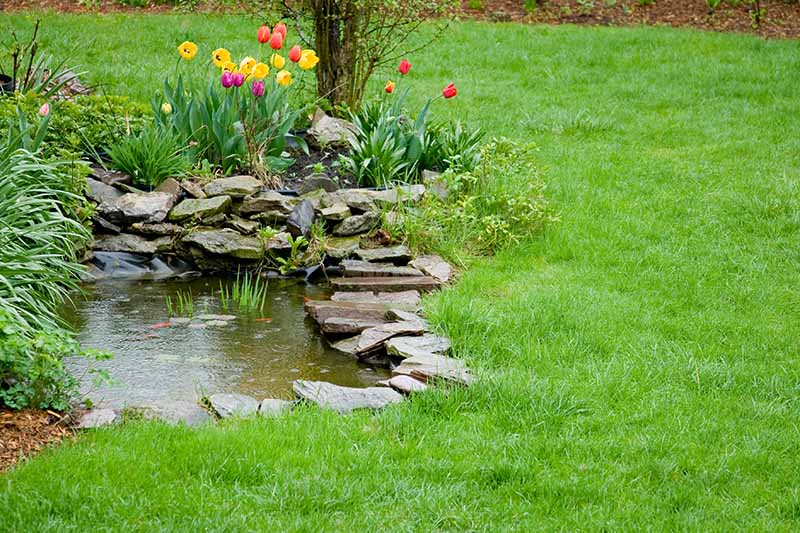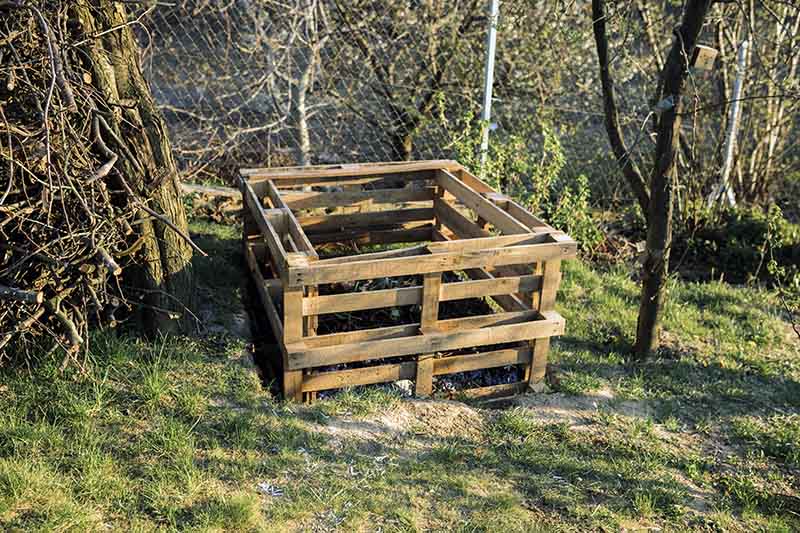11 Sustainable Gardening Tips & Eco-friendly Gardening Ideas

Britain is a nation of garden lovers, and each year more and more people are donning the wellies and getting stuck in. It’s not difficult to see why gardening is becoming increasingly popular, as the benefits that come with it really speak for themselves: not only do you get to keep active and enjoy being outdoors, but you also get rewarded for all your hard work when those plants start to sprout.
From inspired first-time gardeners to seasoned green-fingered veterans, how to make gardening more eco-friendly is a question people often ask themselves. Thankfully, sustainable gardening is simply a matter of reducing, reusing, and recycling!
So if you’re keen to give it a go, here are a few ideas for how you can start working in harmony with nature, and make your garden that much greener.
Get Started with Sustainable Planting

1. Grow your Own Veg
Don’t wait for allotment space - make your own veggie garden at home! This can be done in planters to fit wherever you have a little extra space.
Vegetables are great for showing kids the benefits of gardening, and for enjoying the fruits of your labour at the dinner table. Foods such as potatoes, beetroot, peas, runner beans and mint can all easily be grown in a UK garden with very little effort, as well as salad favourites such as leafy greens, tomatoes, and nasturtium flowers.
2. Plant a Tree
Trees not only provide a habitat for all manner of wildlife, but they also purify the air we breathe, so if you do have the space to plant one then it’s well worth doing. Remember to pick a suitably sized tree for your garden space, and research your local flora to ensure your new tree can thrive.
Planting a sapling isn’t too taxing, and getting the kids involved is not only a fun activity for them, but they’ll also get to watch it grow through the years.
3. Help the Bees
Planting bee-friendly flowers will gain the attention of some very important visitors. The world needs pollinators, and encouraging them to come to your garden helps to keep their numbers up. Use local native plants such as heather, rockcress and lavender, and try to plant them clumped together rather than randomly dispersed.
Planting flowers is also a good opportunity to recycle some old tins, bottles, and containers to use as pots. You can also use innovative alternatives such as recycled paper flower pots, which are treated to last approximately three years before they can be left to biodegrade on the compost pile. These alternatives reduce the demand for plastic pots, which are steadily becoming as big an environmental problem as carrier bags.
Start Using Eco-friendly Gardening Practices

4. Go Chemical-Free
Chemicals can be useful gardening tools, but they have a long-term effect on wildlife and the soil. Instead of spraying herbicide, spend some extra time pulling up weeds by hand. You can do this alone or with the kids to get to know your garden a little better. If you don’t have the time for manual weeding, you can also pour hot water on weeds to kill them. The hotter the water, the more likely the plant is to die - make sure you don’t pour it on plants you want to keep!
Pesticides can be replaced by attracting natural predators to your garden. This includes ladybirds, dragonflies, wild birds, and frogs. You can also line your flower pots with copper to discourage slugs from climbing up and eating your veggies.
5. Cut the Grass Properly
Maintaining a healthy lawn is satisfying work, but there are ways to do it that make for more eco-friendly gardening practices. For example, cutting the grass at a higher setting will strengthen its roots, which makes it more hardy and less susceptible to drought. It also reduces the foothold weeds will have in your garden, as they can’t compete with taller grasses.
6. Be Smart About Water
Summer frequently brings hosepipe bans to the UK. The most eco-friendly way to manage this is to make sure you don’t rely on your hosepipe as much! Planting plants that don’t need as much water, collecting rainwater, or using grey water from your bathtub or kitchen can be a great way to keep your garden both sustainable and happy, even in the height of summer.
Buying a bin or a butt to install in your garden is a good way to collect rainwater for future use on your plants. Many stockists offer starter packs that come with everything you need to install these rainwater bins, and the installation process is quick and easy to do by yourself.
If you prefer to water with your hosepipe, you can increase your garden’s sustainability by using it sparingly. Spray water in short bursts at the base of your plants and flowers late in the evening or first thing in the morning. The cooler temperature allows the water to soak in rather than be evaporated away from the soil in the midday heat.
Use a Sustainable Garden Design

7. Build a Pond
Digging out a pond is not only great exercise, it’s also one of the best ways to attract wildlife to your garden. This includes natural predators to garden pests: Frogs, toads, dragonflies, beetles, and ladybirds will happily feast on aphids and slugs, saving your veggies from decimation. With time and care, you may find that your pond has become home to tadpoles, or even endangered newts!
8. Reduce your Lawn Size
While a lawn is a great way to enjoy your garden space, the larger it is, the less space is allocated for wildlife. Reducing the size of your lawn and planting trees, flowerbeds or rockeries around the edges can encourage insects and animals to move into your garden.
9. Use Solar-Powered Lamps
Solar panels are expensive, but solar-powered garden lighting is much more affordable. Instead of paying the electricity bill on floodlights, invest in solar lighting for your garden. These lights can be placed wherever you please, and are a wonderful aesthetic touch to your garden layout.
Use Green Gardening Tools
10. Swap Petrol for Electricity
Petrol tools produce fumes when used, and have a relatively high carbon footprint for such small objects. Switch them out for electric gardening tools to bolster your green gardening practices! Hedge trimmers, lawn mowers, saws and other tools all have modern electrical versions, although you may need to invest in an extension cord to use them.
11. Make Your Own Compost

A compost heap is the heart and soul of every green garden. While it takes some time to get healthy compost started at home, investing in a compost bin will save you money buying fertiliser in future. Composting also attracts insects, encouraging the growth of an ecosystem in your garden space.
Enjoy your Eco-friendly Garden
Running a sustainable garden isn’t too difficult, and all the little things that we can do at home will soon mount up to make a real difference. Encouraging wildlife and reducing waste ensures that your garden is the best kind of garden for the planet.
At HIPPO, we pride ourselves on our eco-friendly attitude to waste. Check out our sustainability page to find out more about being sustainable in your daily life and HIPPO’s own sustainability efforts.

